Working a job can take up a huge chunk of your life, sometimes even defining who you are. When the effects of that job linger long after its completion, it can be incredibly unsettling and disorienting. Job PTSD is real, and it’s something I can relate to on a personal level—it took me years to fully recover from what I experienced in my past workplace. This blog will uncover the symptoms of job PTSD, as well as explore ways for those affected by it to cope with their condition and find solace in their situation. Although this topic may sound serious at first glance, there will also be an element of hope and optimism incorporated into this post so readers can gain insight into how they too might eventually learn to thrive despite trying times!
Introducing the Topic of Job PTSD and My Personal Experience with it

Hey there, have you ever heard of job-related PTSD? It’s a condition that affects many individuals who have been exposed to traumatic events at work. As someone who has experienced this firsthand, I know how debilitating it can be. It’s like constantly being trapped in a nightmare, unable to escape the anxiety, flashbacks, and fear that come with it. It’s not just soldiers or first responders who can develop PTSD, but anyone who has faced a traumatic event at work.
My personal experience came after the organization I worked for was acquired by a massive conglomerate. For the first year it was pretty much business as usual, and then things started to change. New leadership was brought in at nearly every level and the “XYZ Business Process” was introduced and in full swing. Culture, experience, humanity all removed from the equation. It was now about numbers and only numbers. It was only a matter of time for me as I wasn’t one of those employees willing to kiss the asses of the new leadership. Gradually, the environment wore me down. My self-esteem and confidence was reduced dramatically and my self-worth was at an all-time low. It’s taken years to get back to my old self and to realize the issue was them and not me. Hey, MK… fuck you!
There is, however, hope for recovery with proper support and treatment. It’s important to speak up and seek help if you or someone you know is dealing with job-related PTSD. Let’s break the stigma and get the support we need.
Exploring the Symptoms of Job PTSD
Job related PTSD is a common issue that many people in the workforce face, but it’s not often talked about. Symptoms can include flashbacks, nightmares, and difficulty sleeping, among other things. It’s important to recognize these symptoms and seek help if you’re struggling. Remember, you’re not alone in this and there are resources available to help you manage your symptoms and regain control of your life.

How to Recognize if You Have Job PTSD
You may have heard of PTSD in relation to veterans who have experienced traumatic events in combat, but it can also happen to those of us in the workforce. Maybe you’ve experienced a toxic work environment, a boss who constantly put you down, or a project that left you feeling completely burned out. These experiences can leave lasting emotional scars that affect your day-to-day life. Look out for signs like flashbacks, avoiding tasks or situations that remind you of your past job, and feeling on edge or easily irritated. Remember, it’s okay to seek help and take care of yourself mentally just as you would physically.
Unpacking the Causes of Job PTSD
Have you ever felt like your job is slowly gnawing at you? Maybe you dread going to work or have trouble sleeping after a long day. This could be a sign of Job PTSD. It’s a condition in which long-term stress and trauma from work lead to physical and mental health problems. It’s important to unpack the causes of Job PTSD so that we can better understand how to prevent and treat this condition. Some common triggers include workplace bullying, high-pressure environments, and exposure to dangerous or violent situations. But the causes can also be more subtle, like feeling undervalued or unsupported by your colleagues or employer. By addressing these issues head-on and providing better support to employees, we can create healthier and happier work environments for everyone.
Strategies for Coping with Job PTSD
Facing PTSD from job-related experiences can be challenging, but there are strategies that can help you cope. One important step is to seek support from those around you, whether that be friends, family, colleagues, or a therapist. It’s important to acknowledge your feelings and not dismiss them as insignificant. Techniques such as deep breathing, progressive muscle relaxation, and mindfulness meditation can help reduce anxiety and stress. Whether it’s finding a creative outlet or developing a new hobby, dedicating time to things that bring you joy and peace of mind can also aid in the healing process. Remember that healing takes time and it’s okay to take things at your own pace. Be kind to yourself and know that you are not alone.
Finding Help and Support After Experiencing Job PTSD
Dealing with job-related trauma is never easy, but there is always help available if you know where to look. Whether you were involved in a workplace accident or endured significant stress and anxiety on the job, post-traumatic stress disorder (PTSD) can be a debilitating condition. Luckily, there are many resources and support groups out there that can help you find the assistance and guidance you need to heal and move forward. From counseling sessions and therapy to group meetings and online forums, the path to recovery starts with reaching out and seeking the help you need. Remember, you don’t have to suffer alone – there are many others out there going through the same thing and ready to offer support and understanding.
Job PTSD is a serious issue that is often overlooked and it can have profound economic, psychological, and physical consequences. While there may be no easy solution to the problem of job PTSD, such as seeking professional help or finding positive outlets for stress and fear, it’s important to not ignore the signs of PTSD. If you recognize any of these symptoms in yourself or someone you know, please help them seek support. Don’t hesitate to reach out to friends and family if you ever feel overwhelmed with the effects of job PTSD. In my own experience, I was fortunate enough to find a team of people who had my best interests in mind, who helped me heal and rebuild for a healthier future. Oftentimes, all we need is that extra bit of kindness from someone — it can make all the difference in recovering from job PTSD.


